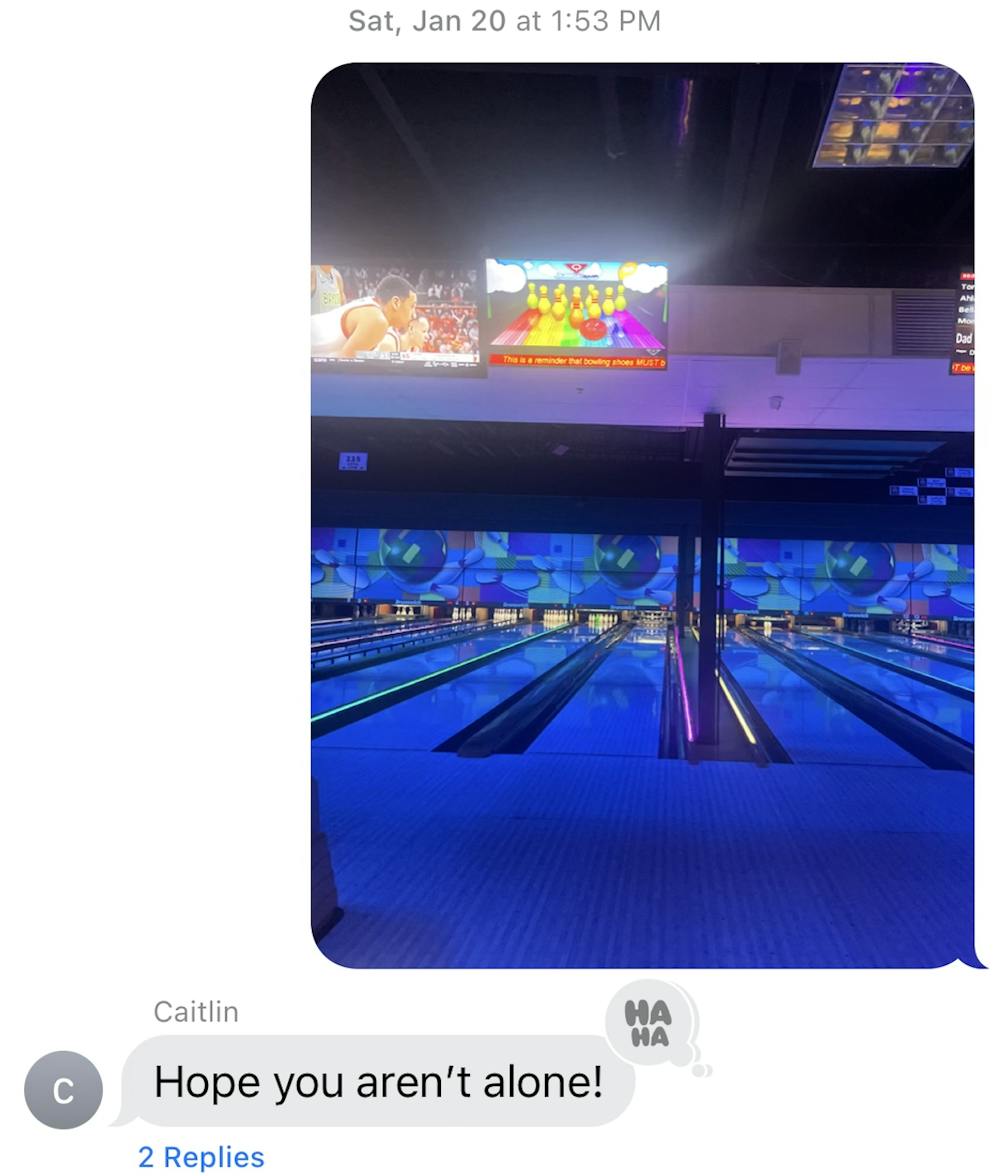Recently I went bowling. Don’t worry, I didn’t bowl alone. I’m a patriot, after all.
My friends and I went over to Strikes and Spares. Among all of the little kids celebrating birthdays, we celebrated our friend’s half birthday. Twenty-one and a half is just as fun as 21! Her summer birthday is often skipped over because we’re not on campus, so we all decided to go bowling together.
I talk a lot about bowling alone and why you should never do it. Freshman year of college, I read excerpts of Robert D. Putnam’s "Bowling Alone: The Collapse and Revival of American Community" and have thought about it a lot since, both as a punch line and as a serious way of thinking about American democracy and community-building.
Recently, my friend told me she was reading "Bowling Alone" for one of her classes and I simply cannot wait to hear her thoughts. You can find a synopsis of "Bowling Alone" online or the text itself on the Hesburgh Library website. In the spirit of full discord, I myself have not read the book in full, only the excerpts required for class.
"Bowling Alone" suggests that the social capital of the United States has declined since World War II. While being aware of the rose-colored glasses “the greatest generation” can often be viewed with, we can also acknowledge Putnam's emphasis on the importance of trust in civic and social affairs.
Putnam also argues that nostalgia is not always a “rosey-eyed remembrance” but also “an attempt to recapture a time when public-spiritedness really did carry more value and when communities really did ‘work.’”
Today, nostalgia has a constant presence on social media, especially in terms of music and fashion. I don’t believe this nostalgia suggests a social malaise and lack of social connection, considering trends depend on a large number of people to adopt them to be successful. For example, the shoulder bags and platform shoes of the 2000s have made a full comeback visible on our own campus.
These trends might suggest a lack of connection between producer and consumer, rather than that of the public, or consumers, to one another, as people increasingly buy trending clothing from large corporations.
Nostalgia for the pandemic lockdown also circulates on the internet, with people sharing their longing for the trends and music of March 2020.
Putnam emphasizes the importance of trust and participation in civic and political affairs. Social voluntary groups are important to democracy because while connections with other people don’t guarantee that a person will empathize or understand others: “Social isolation virtually guarantees that [they] will not.”
After Putnam's essay on which he based his book, rose to popularity in 1995, some suggested that Putnam’s theory wasn’t correct at all and that Americans continued to participate in social activities at the same or a similar rate as their generational predecessors.
But, I never bowl alone. If not for the fact that I would be totally embarrassed to bowl alone, for the fact that bowling is only really fun when you play with other people. This, of course, is not what the book is about at all. Bowling alone acts as a metaphor for a wider American movement away from social and civic groups to a more individualistic, less community-based view of life.
On a campus with a great deal of social clubs and events, it can be hard to imagine the decline of American civic and social participation. But, depending on whether you buy Putnam’s argument or not, the Notre Dame bubble may provide a false sense of American participation and social connectedness when compared with larger American happenings or a microcosm of a flourishing democratic society.
Erin Drumm is a senior at Notre Dame studying American studies, journalism and history. She is from Philadelphia and spends her summers (and every weekend possible) at the shore in Cape May County, New Jersey. Outside of The Observer, Erin can be found cheering on the Fighting Irish and the Phillies, reading and talking about pop culture and history. She can be reached at edrumm@nd.edu.










